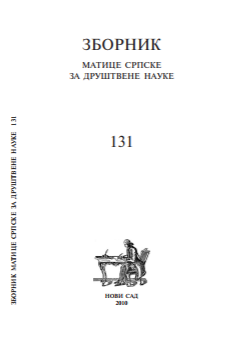РЕГИОНАЛНЕ СПЕЦИФИЧНОСТИ ТРАНЗИЦИЈЕ У ОДРАСЛОСТ У ЕВРОПИ ИЗ СОЦИО-ДЕМОГРАФСКЕ ПЕРСПЕКТИВЕ
REGIONAL CHARACTERISTICS OF TRANSITION TO ADULTHOOD IN EUROPE FROM SOCIO-DEMOGRAPHIC PERSPECTIVE
Author(s): Suzana IgnjatovićSubject(s): Geography, Regional studies, Sociology, Social development, Demography and human biology
Published by: Матица српска
Keywords: transition to adulthood; markers of transition to adulthood; types of transition to adulthood;
Summary/Abstract: The paper provides a comparative overview of models of transition to adulthood in European countries. Transition to adulthood is defined as a process of multifold status change in key domains of life. Indicators of transition include education, professional, family and residential markers. Individual transition to adulthood is influenced by external determinants such as welfare system, family relations, housing conditions, and value orientations (notably in family transition). Current research in this field provides evidence for provisionary mapping of transitional paths. A very common classification differentiates between Nordic, West European and South European types of transition to adulthood. There is also an alternative categorization, based on geographic, social and political dimensions. The model comprises member states of the EU, ex-communist countries, and Balkan countries. In the final segment of the paper, transition to adulthood in Serbia is discussed in more detail. We compare indicators of transition to adulthood, and focus on both diverging and converging trends in transition to adulthood in Serbia and the EU.
Journal: Зборник Матице српске за друштвене науке
- Issue Year: 2010
- Issue No: 131
- Page Range: 369-375
- Page Count: 7
- Language: Serbian

